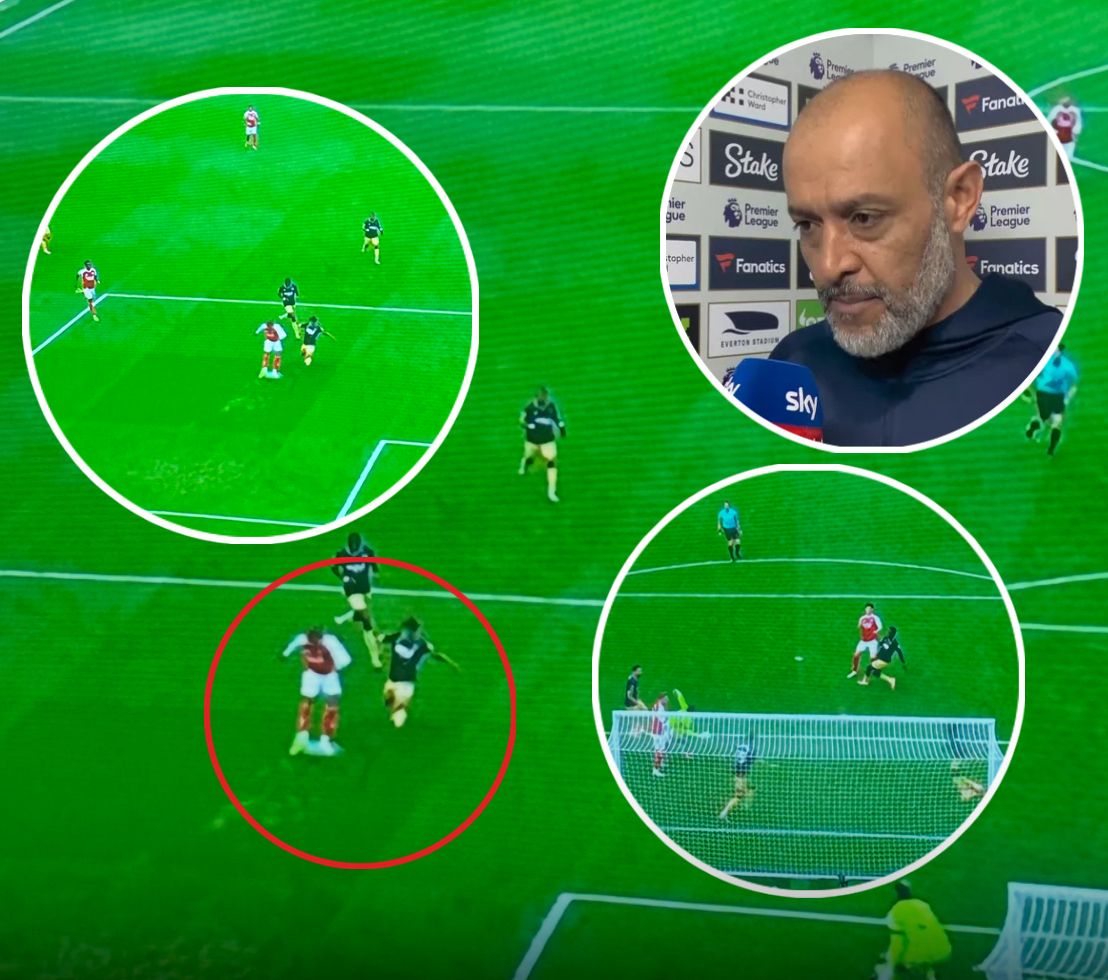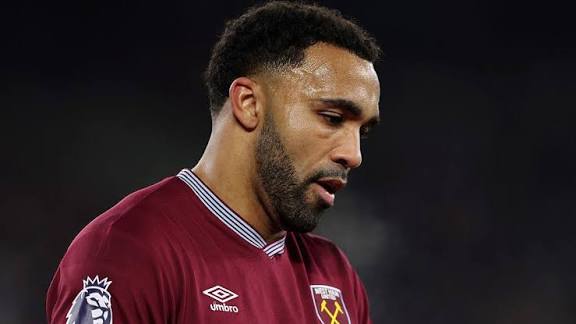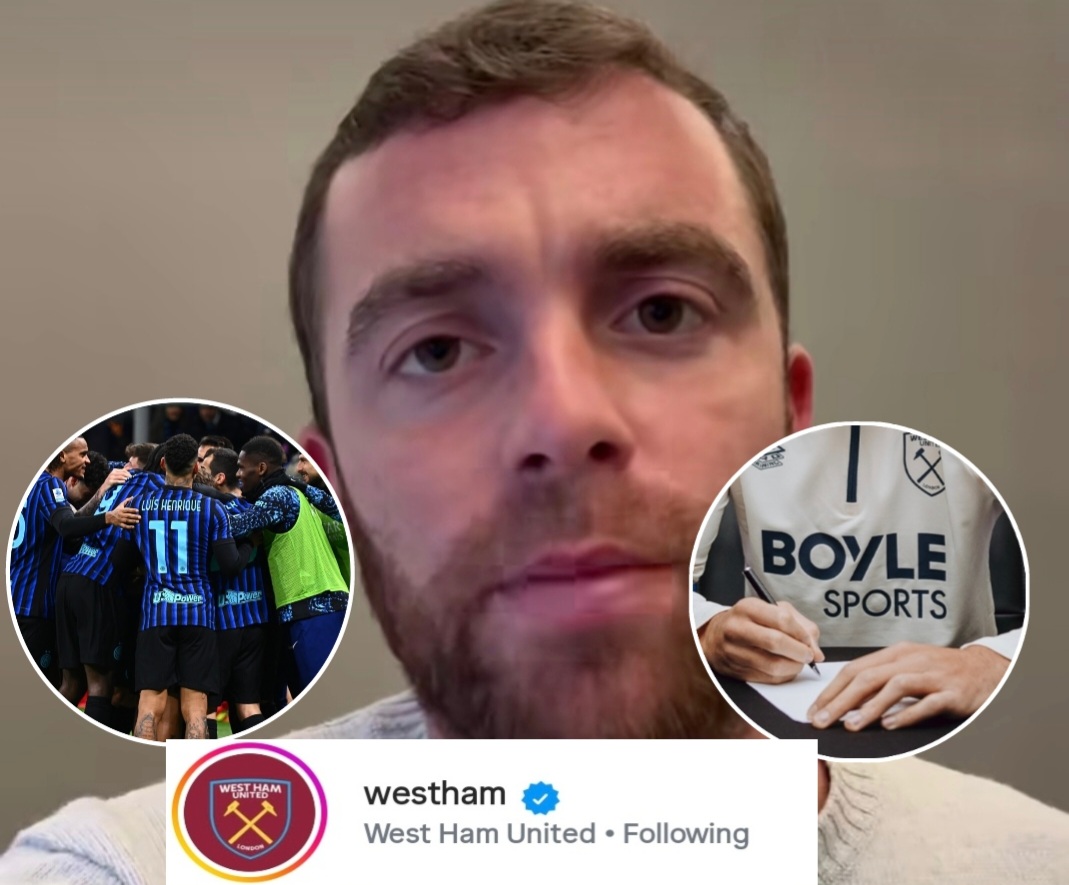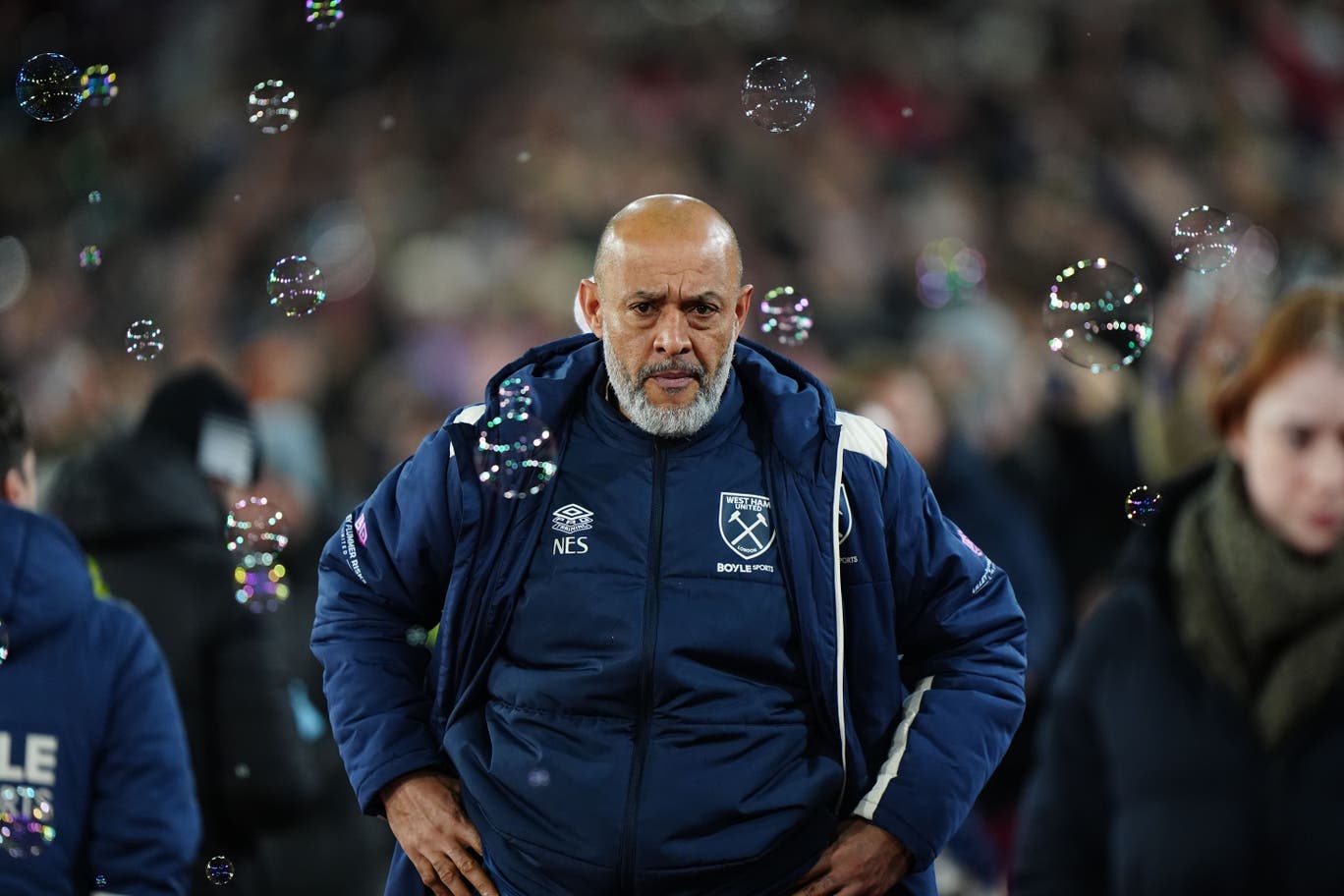WEST HAM FANS HAVE SEEN ENOUGH,HE IS THE WORSE PLAYER IN THE WHOLE SQUAD AND THEY WANT HIM OFF THE CLUB ASAP AFTER HIS TERRIBLE PERFORMANCE
West Ham United’s troubles are not new, but they worsened on Saturday, October 4, 2025, when the Hammers were beaten 2-0 by Arsenal at the Emirates Stadium. Declan Rice struck first—ironically, against his former club—in the 38th minute, and Bukayo Saka added a penalty in the 67th minute to seal the win. Arsenal’s dominance was evident and West Ham offered little resistance, failing to register a shot on target throughout the entire match. 
While several players came under fire, a storm has erupted among West Ham supporters toward midfielder Diouf. Fans are calling for Nuno Espírito Santo to cut him loose, believing his performance was perhaps the worst in the squad on the night, littered with mistakes, lacking composure, and showing insufficient quality for Premier League demands.
⸻
The Match: What Went Wrong
To understand the intensity of the backlash, it’s necessary to examine what actually went wrong for West Ham during the game.
1. Lack of Offensive Threat
West Ham never truly tested Arsenal. Zero shots on target is damning in any match, but especially when playing away to a top-side. Arsenal’s control in possession, positional discipline, and ability to exploit weaknesses in the West Ham defense exposed serious gaps.
2. Defensive Fragility and Errors
Arsenal’s goals came as a result of well-taken opportunities—first via Rice’s rebound effort, then from a Saka penalty. But building up to those goals were defensive lapses, poor tracking, loss of positions, and hesitation in pressure. West Ham seemed reactive rather than proactive.
3. Mental and Physical Confidence Issues
From the password to challenge in duels, to responding to Arsenal’s pressure, West Ham appeared flat. This can stem from low morale, shaky tactical organization, or lack of belief—especially against a side in form like Arsenal.
4. Key Individual Weaknesses, According to Fans
It is here that Diouf is most often singled out. Fans are pointing to several moments in the match where they believe he directly contributed to breakdowns:
• Misplaced passes that opened passing lanes for Arsenal.
• Being caught out of position on transitions.
• Failing to properly support teammates defensively, leading to overloads.
While the official match reports do not single out Diouf repeatedly, fan discussions and social media threads are increasingly sharply critical. In post-match threads, many users described the performance of certain midfielders as “absent”, “off the pace”, or “liability.” 
⸻
Diouf: What Fans Are Saying
Here is a breakdown of the criticisms being levelled at Diouf:
• Worst in the Line-up
West Ham fans on forums and social media have almost uniformly labelled him “the worst player” in the squad versus Arsenal. They argue that whereas some players were merely off form, Diouf’s mistakes directly led to danger for the team.
• Lack of Tactical Discipline
Observers say Diouf looked lost. In particular, they claim he failed to close down space between the lines, allowed Arsenal players time on the ball, and wasn’t proactive in pressing, especially when switching from attack to defense.
• Poor Passing and Decision Making
Mistaken passes in safe zones, not choosing risky passes only when beneficial, and sometimes being slow to react. This is contrasted with teammates who either tried to hold the ball or made an effort to build forward, even if under pressure.
• Low Work-Rate and Intensity
Some fan comments suggest that Diouf’s body language and movement demonstrated a lack of urgency. In a match where West Ham needed energy and aggression, Diouf is perceived by many as having been passive.
• [Off the Ball] Weaknesses
Without the ball, the midfield needs to track runners, cover spaces, support fullbacks, and disrupt play. Fans say Diouf did not do this often enough; this exacerbated the problems when defending high pressure from Arsenal.
• Calls for Sale
Because of performances like this, some sections of the West Ham fanbase are urging the club to sell him in the next transfer window. They argue that West Ham need midfielders who are more reliable, consistent, and better suited to Nuno’s system—if that system is to be successful.
⸻
Managerial Implications: Nuno Espírito Santo’s Dilemma
The criticism of Diouf isn’t happening in isolation. It reflects broader questions about West Ham’s squad, Nuno’s tactics, and what direction the club is going.
• Tactical Fit – If the manager’s style demands high pressing, quick transitions, and disciplined spacing, then players who aren’t suited to that or who are too error-prone risk being exposed in high intensity fixtures.
• Squad Depth – Are there alternatives to Diouf? If there aren’t, then even fans might concede he gets time. But the grumbles suggest that many believe there are better options either in the squad or obtainable via transfers.
• Confidence & Momentum – At this stage of the season, confidence is fragile. A bad loss, especially away to a strong opponent, can undermine belief. A poor performance by a player repeatedly targeted in criticism can affect team morale.
• Fan Pressure – Clubs increasingly feel the pressure from fans on social media, in stands, and via coverage. If the negativity around Diouf continues, it could force Nuno’s hand: either in giving him more support/training, dropping him, or offloading him in the next market.
⸻
What the Stats Say vs Fan Perception
It is important to separate what fans think with what stats and objective metrics might show. As of the latest matches:
• Shots, Chances, Expected Goals (xG) – West Ham have struggled offensively; allowing Arsenal to dominate possession and chances means the margin for error is small.
• Pass Completion, Ball Retention – Players like Diouf are judged more harshly if their pass completion dips or if they give away possession in dangerous areas.
• Defensive Actions – Tackles, interceptions, blocks, duels won: these numbers tend to matter a lot. If a player is lacking in these, fans see it, even if the overall team tactics also limit some defensive contributions.
• Heat Maps / Positioning – These can sometimes show whether a player is out of position or not adhering to tactical instructions. While detailed breakdowns for this specific match are not (publicly) available yet, fan observations suggest Diouf was often caught too deep or too wide, leaving vulnerabilities elsewhere.
So far, the statistical narrative seems to reinforce at least some of the fan complaints—not always to the level of “worst player ever,” but enough to signal a worrying trend of underperformance.
⸻
Context: Previous Performances & Fan Frustrations
This match is not an isolated incident. West Ham supporters have seen similar patterns:
• Defensive errors in consecutive games, especially high-profile ones, have compounded frustration.
• Midfield instability: when key players are injured or out of form, West Ham have lacked a reliable backbone in the centre.
• Inconsistency under pressure: Arsenal, Liverpool, Manchester City fixtures expose weaknesses sharply. Losing to Arsenal 2-0, especially while failing to muster an attacking threat, echoes past losses that have felt similarly one-sided.
In essence, Diouf becomes a focal point for frustrations that run deeper: tactical issues, recruitment concerns, and lack of consistency.
⸻
But: Some Counterpoints and Fairness
Before concluding, it’s important to consider whether the criticism is entirely fair. A few caveats:
• Single Match vs The Curve – One poor performance does not a player’s season define. All players have off days, especially in big away games.
• Tactical Constraints – Nuno’s system, the opposition’s quality, injuries, and team selection all affect individual ability to shine. If Diouf is asked to do a lot of defensive work, pressing, covering long distances, in a match where the rest of the team is under pressure, mistakes may be more likely.
• Psychological Burden – When fans single someone out, that player might carry added mental weight. That can affect performance, especially from one game to the next.
• Loyalty & Potential – Many fans also acknowledge that Diouf has shown promise in other games. Some argue that patience is needed, that he has talent, and that he might improve with more game time or better support around him
What Needs to Happen Next
Given the situation, here are the steps that might help the club, manager and Diouf himself to address the situation:
1. Performance Review & Feedback
Nuno and his coaching staff should give Diouf clear feedback: what is going wrong (passing, positioning, decision-making), and set specific targets. Possibly video analysis, extra tactical drills, or mentorship.
2. Rotation & Competition
Introduce competition in midfield. If there are players who can offer more defensively or more creativity, rotating them could relieve pressure on Diouf and force improvement.
3. Tactical Adjustments
Adjust the game plan slightly to shore up midfield protection or reduce exposure. Perhaps give Diouf more support when possession is lost, or tweak his role.
4. Mental / Psychological Support
Football is as much mental as physical. If criticism (from media, fans) is weighing on him, then helping him regain confidence is crucial.
5. Transfer Considerations
If performances do not improve, the club may need to consider whether Diouf should be moved on. But this would need to be balanced: would selling him improve the squad immediately, or risk leaving a gap?
6. Fan Communication
The club and manager should communicate clearly—set expectations, acknowledge mistakes, show that steps are being taken. That helps calm supporters or at least channel frustration more constructively.
⸻
Conclusion: Growing Impasse Between Fans and Player
West Ham’s 2-0 loss to Arsenal has intensified scrutiny on Diouf. While many fans believe he was the worst performer of the night, blame does not rest solely on his shoulders. The team’s structure, morale, tactical clarity, and quality of opposition all played parts. But for Diouf, this represents a tipping point: enough criticism, enough perceived errors, and enough dissatisfaction that his future at the club is under question in many fan circles.
If Diouf can respond with improved performances, more control in midfield, fewer errors, and better discipline, he might steady the ship. But if the current trajectory continues, calls for him to be sold off are likely to grow louder.
West Ham find themselves at a crossroads: stick with a player the fans have increasingly lost patience with, or act decisively to shore up midfield quality and credibility. For Nuno Espírito Santo, proving that his vision can stabilize and lift the club will depend in part on how he deals with this controversy.








Post Comment